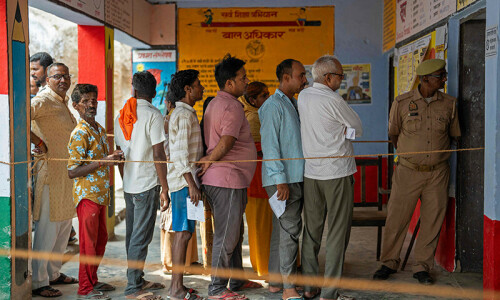THE Tarbela Dam, recognised as the world’s largest earth-fill dam and irrigation reservoir, was completed on the Indus in 1976 as part of the Indus Basin Water Treaty that was signed between Pakistan and India. Initially intended to store and regulate water for irrigation, it subsequently served the additional purposes of hydropower generation and flood mitigation.
The original reservoir operating rule, mandating an annual lowering to a level of 1,300 feet by May 20 for sluicing silt, was sporadically followed until 1989 before it was completely disregarded in the 1990s, leading to over 40 per cent capacity depletion by 2017.
Projected estimates suggest Tarbela might transform into a run-of-the-river project by 2040, with minimal irrigation benefits. That being so, it is clear that any further siltation poses significant risks to the national economy.
It would surely exacerbate irrigation shortages, necessitating increased electricity for groundwater pumping. Reduced storage capacity will also jeopardise Tarbela’s flood mitigation usage, causing higher damages. Silt- free water requires more chemical fertilisers, and the vast silt accumu-lation in the aging dam has become a downstream threat. Depletion has also reduced the energy output of down-stream hydropower stations.
As the national population continues to grow, with proportional spike in overall food demand, the problem is only going to be more intense with time. With limited resources and few potential dam sites in the country, building new dams is a challenge.
Over the last 47 years, the population has tripled, but irrigation storage capacity has significantly decreased. This has happened basically due to siltation.
A national policy is needed rather urgently to prevent siltation in the country’s irrigation reservoirs. The Indus River System Authority (Irsa) is the relevant entity to develop and implement such a policy with due approval of the Council of Common Interest (CCI).
Muhammad Akram Khan
Lahore
Published in Dawn, January 15th, 2024











































Dear visitor, the comments section is undergoing an overhaul and will return soon.